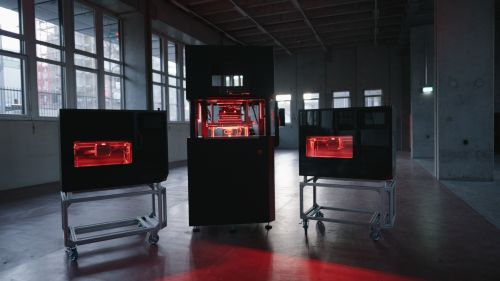A version of this article ran in the December issue of BRAIN.
ZURICH (BRAIN) — Brands looking to add some Swiss precision to their bike products are looking to 9T Labs, a 5-year-old continuous fiber composite manufacturer.
The company has been producing parts for Swiss-made luxury watches for over a year, including producing a carbon composite watch case for an Oris SA watch. 9T has active development projects with three major bike brands, Yannick Willemin, 9T’s director of business development, told BRAIN.
The company said its manufacturing technology combines additive manufacturing with a fusion process, allowing rapid development and production of small, complex parts that can be much lighter than parts typically made of aluminum.
Applications for its technology include suspension rocker arms, derailleur cages, brake levers and crank arms. Willemin said its first bike applications, for high-end bike models, will be in consumer hands in 2025.
The process embeds fibers in a thermoplastic matrix; the thermoplastic allows recycling and the process results in parts with fiber content of 60% or more by volume, unlike traditional thermoset carbon fiber layup manufacturing which is 55% fiber at most. The higher fiber content produces a stronger, lighter product. The Additive Fusion process also requires no machining after molding and allows co-molding to integrate features such as sensors or metal inserts into the part.
The strategy is to first develop products for the premium segment, with production in-house in Switzerland, and then move into higher volume applications, likely providing manufacturing equipment and technology to Taiwan manufacturers, he said.
“We would probably sell the machine to the factory and license the software behind it. We would continue to develop and assemble the machines in Zurich, which is not the cheapest place to manufacture,” he said.
9T has no interest in being a component brand, preferring to be an OEM supplier and development partner. However the company plans to employ a co-branded marketing scheme in the bike market, making its brand discrete but visible on parts developed with bike brands, something like the Intel Inside or Goretex strategy. “We would play on the ‘Made in Switzerland,’ novel technology aspect,” he said.
Willemin noted, however, that 9T is not able to use that marketing strategy in the luxury watch space. Besides the difficulty of co-branding on a watch, luxury watchmakers promote technology, durability and, above all, their brands’ stability, bolstering their products’ status as long-term investments. Adding a new co-brand to a watch risks making potential customers nervous about the supplier’s longevity, he explained. Even if the supplier survived 20 years, that would be too short by luxury watch standards, so watchmakers tend to emphasize that all their technology and manufacturing is done in-house. Bike manufacturers and consumers, in contrast, do not expect stability on that scale.
The company has about 70 employees and was funded with a $25 million investment; its founders have backgrounds in aerospace and Formula 1 manufacturing. 9T has about 60 employees in Switzerland and an office in Boston with about 10 employees.
Besides the performance advantage of parts made with 9T’s technology, other advantages include a zero-waste manufacturing process and recyclability. The technology’s “open-source” platform is compatible with various carbon, glass, and basalt fiber vendors globally, rather than relying on materials from a limited number of suppliers.
9T exhibited at Eurobike last year and displayed at October’s CAMX, the composites and advanced materials expo in Atlanta.




